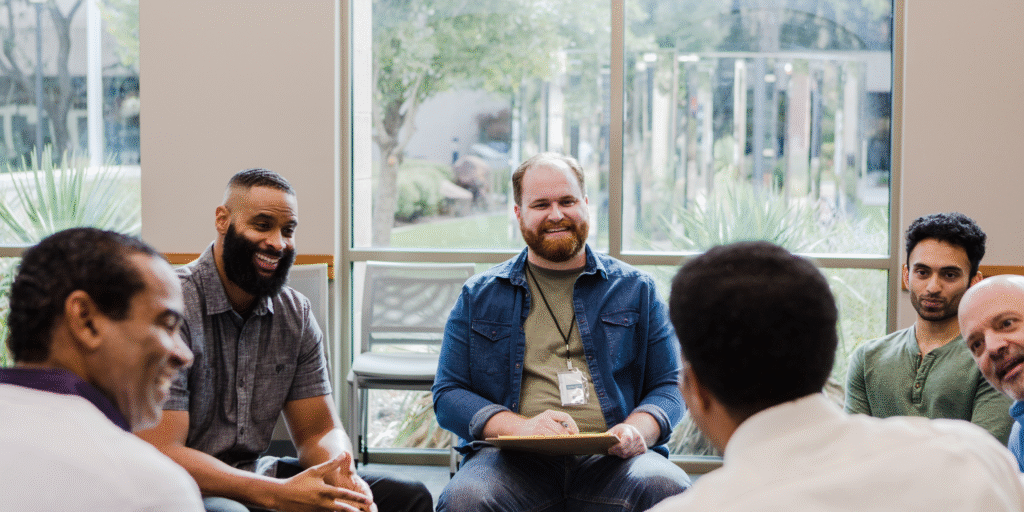Introduction
Personal growth and fulfillment is achievable at any stage of life, but for men over 35, it often requires intentional action and guidance. At Next Mission Coach, we help men reclaim their lives through a combination of self-discovery, health optimization, and strong social connections. Drawing on my legal experience, especially from representing clients in divorce, child custody and other complex matters—I’ve witnessed how personal transformation can restore purpose, confidence, and meaning in life. This guide will show you actionable ways to pursue personal growth and fulfillment, improve your health, and strengthen relationships.
1. Personal Growth and Fulfillment: Building a Life That Matters
Many men over 35 experience a sense of stagnation—feeling that their lives are on autopilot, shaped by obligations rather than personal choices. Personal growth and fulfillment is about breaking free from this cycle and creating a life that feels meaningful, rewarding, and aligned with your deepest values.
Consider someone who spent years climbing the corporate ladder only to realize they neglected passions, friendships, and self-care. The realization that life could be richer often sparks a desire for transformation. In an article by Vitality for Men, they pose the question “What Does The Passion for Achievement Mean for Men Today?” The article addresses, “What Fuels Our Passion?”, “Understanding Ambition Beyond Material Gain” , and more. The article points out that “in a world increasingly obsessed with success metrics, ambition can often be reduced to a nuerochemical chase for dopamine. Yet, if we reframe our interpretation of ambition through a historical lens….we recognize that the hunger for achievement runs much deeper.”
For most men over 35, there is that inner desire for something more. And the question is often asked, —“Who am I outside of my obligations?” These pivotal moments often catalyze profound personal growth. So, let’s review some real-life examples and strategies for personal growth and fulfillment.
Real-life examples:
- A client who felt burned out from work discovered a passion for mentoring youth, which reignited purpose and energy.
- Another, after navigating a difficult divorce, used reflection and goal setting to pivot careers and pursue a long-held dream of entrepreneurship.
Strategies for Personal Growth and Fulfillment:
- Identify Core Values: Write down your top 5 values and compare them with your daily life choices. Aligning actions with values is shown to increase satisfaction and life purpose.
- Adopt a Growth Mindset: Embrace challenges as opportunities to learn rather than obstacles. Research by Carol Dweck shows a growth mindset increases resilience and achievement.
- Micro-Actions Daily: Small, consistent actions—like reading 20 minutes daily, practicing gratitude, or networking—compound into major personal transformation.
- Mentorship and Accountability: Partner with a mentor, coach, or accountability partner. Accountability increases follow-through and reinforces personal growth and fulfillment.
- Reflect on Past Challenges: Analyzing past challenges, like divorce or legal battles, can help you recognize patterns, avoid repeating mistakes, and cultivate resilience.

2. Health and Well-Being: The Foundation of Fulfillment
Health is more than a physical condition—it is the bedrock for mental clarity, emotional resilience, and sustained energy. Without it, achieving personal growth and fulfillment becomes exponentially harder. Many men neglect health while focused on careers or family obligations, only to experience burnout or chronic stress later.
Real-world insight: I’ve seen clients struggling through high-stress divorces or intense work periods. Those who prioritized exercise, nutrition, and mental health consistently bounced back faster and made better decisions during crises. A friend in a similar position used swimming and meditation to manage stress during his custody battle, which helped him maintain composure in court and clarity in negotiation.
Additional insights:
- Chronic stress and poor nutrition can severely impact cognitive function and decision-making, undermining personal growth.
- Mental health practices, like journaling or meditation, improve emotional resilience and provide clarity during life transitions.
- Regular physical activity enhances confidence and energy, which makes pursuing personal goals more manageable.
Strategies for Health and Well-Being:
- Sleep Hygiene: 7–9 hours of quality sleep improves decision-making, mood, and memory. Lack of sleep impairs cognitive function, reducing growth potential.
- Stress Management Techniques: Practices like deep breathing, progressive muscle relaxation, and mindfulness meditation reduce cortisol and improve mental focus.
- Functional Fitness: Focus on exercises that enhance strength, flexibility, and endurance—helpful for long-term mobility and energy.
- Nutrition Beyond Calories: Include omega-3 fatty acids, fiber, and antioxidants to reduce inflammation and support brain health.
- Routine Health Check-Ups: Preventive care ensures you catch potential issues early, supporting long-term personal growth and fulfillment by maintaining physical capacity for life goals.

3. Relationships and Social Connection: Strengthening Your Support System
Human beings are inherently social. Strong relationships are directly tied to personal growth and fulfillment, life satisfaction, and resilience. However, life transitions—divorce, career changes, or relocation—can fracture social networks. Rebuilding or deepening relationships is essential.
From my legal experience, I observed that individuals with supportive networks navigated divorce and child custody disputes more successfully. For instance, a client who leaned on trusted friends and family during his divorce not only endured the process with less stress but also emerged with healthier interpersonal skills and greater self-confidence.
Real-life examples:
- Volunteering in community programs helped a client rebuild confidence while fostering new friendships.
- Regular dinners with close friends provided emotional support and a sounding board for career and life decisions.
- Family therapy sessions helped another client repair communication with his teenage children post-divorce.
Strategies for Strengthening Relationships and Social Connection:
- Develop Emotional Intelligence (EQ): Recognize and manage your emotions while empathizing with others. High EQ (also known as “Emotional Quotient”) improves communication, conflict resolution, and trust.
- Quality Over Quantity: Invest in fewer, deeper relationships rather than spreading yourself too thin. Meaningful connections are more fulfilling than superficial ones.
- Family Reconciliation Practices: Structured conversations, therapy, or mediation can help rebuild trust after divorce or conflict.
- Social Integration for Mental Health: Studies show that individuals with strong social networks are more resilient to depression and anxiety.
- Volunteering and Purposeful Service: Contributing to a cause larger than yourself strengthens community ties and improves overall well-being.

4. Integrating Health, Relationships, and Growth for Maximum Impact
Achieving balance across personal development, health, and relationships is like building a three-legged stool—neglect one, and stability falters. Integrating these pillars ensures holistic personal growth and fulfillment and equips you to thrive rather than merely survive.
Informative context:
- Integrating growth, health, and relationships allows momentum in one area to reinforce the others. For example, physical fitness can improve mood and confidence, which enhances social interactions and willingness to pursue new goals.
- Energy management is key: some activities drain one pillar while feeding another. Understanding this interplay prevents burnout.
- Mind-body practices enhance health, focus, and emotional intelligence simultaneously.
Real-life examples:
- A client joined a running club, addressing fitness and social connection simultaneously while reinforcing personal accountability.
- Another scheduled weekly learning sessions with a friend, blending growth and relationship-building.
Strategies for Integration:
- Holistic Goal Planning: Set goals that intersect these areas, e.g., a weekly fitness class that doubles as a networking opportunity or a personal development course attended with friends.
- Energy Management: Use your physical, mental, and social energy strategically. Prioritize activities that feed all three pillars rather than depleting any one area.
- Mind-Body Practices: Mind-body practices improve physical health, emotional regulation, and social awareness simultaneously.
- Reflective Integration: At the end of each week, review how your health, growth activities, and social interactions contributed to your life goals. Adjust proactively.
- Celebrate Wins Across Areas: Recognize achievements in growth, health, and relationships together. Celebrating integrative progress reinforces positive habits and motivation.
Conclusion
Pursuing personal growth and fulfillment after 35 is not only possible—it’s transformative. By focusing on personal development, health, and relationships, you can reclaim your life and achieve lasting purpose. At Next Mission Coach, we specialize in helping men navigate life transitions, whether overcoming divorce, career shifts, or personal setbacks. Your next mission is about thriving, not just surviving—take the first step toward personal growth and fulfillment today.
Turn your crisis into your comeback. Need help mapping your comeback? Discover your Reinvention Readiness Score. I invite you to take the free Reinvention Quiz and then receive your free Reinvention Blueprint on my site. In 90 seconds, you’ll get a custom roadmap to help you start over after 35 and become unstoppable. * Note: For access to the quiz, we recommend using Chrome, Edge, Firefox, or Safari. Privacy browsers like DuckDuckGo may prompt you to log into Google.
Visit 👉 nextmissioncoach.com to schedule your free call and learn how the 12-week one-on-one reinvention coaching program can help you rebuild your confidence, clarity, and purpose.
Anthony V. Johnson is a personal development coach helping men over 35 reclaim their energy, clarity, and life purpose through personal development strategies and burnout recovery systems. Follow me on LinkedIn
#PersonalGrowthAndFulfillment #Personal Development Coach #LifeAfter35 #MensLifeCoaching #SelfImprovement #HealthAndWellBeing #LifeReinvention #RelationshipsMatter #SocialConnection #LifeTransformation
#Over35Coaching #MindBodyBalance #PurposeDrivenLife #PersonalDevelopment #ThriveNotSurvive #NextMissionCoach

